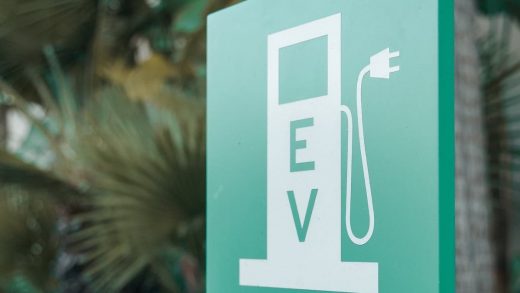:format(webp)/https://www.thestar.com/content/dam/thestar/entertainment/movies/2023/07/18/margot-robbie-rules-but-its-ryan-goslings-ken-who-steals-the-show-in-barbie-movie-review/main_barbie_movie_review.jpg)
The great joke of “Barbie,” Greta Gerwig’s winking satire of existential angst and patriarchal politics, is that plasticity represents perfection while humanity is its abhorrent opposite.
It’s a tricky balancing act that writer/director Gerwig ( “Lady Bird,” “Little Women”) and her co-writer/partner Noah Baumbach for the most part manage quite well and with wicked humour, in a candy-coloured production that looks like “The Wizard of Oz” on acid. This plastic is fantastic.
The conceit starts to wear a bit thin as the film constantly shifts between Barbie Land, a woman-led pink paradise free from all physical defects, and the scary Real World, represented by a Los Angeles blighted by male domination, cellulite and flat feet.
What really makes this comedy click are the stellar performances, from the lead role on down. This is the funniest cast I’ve seen in some time.
The title doll played by actor/producer Margot Robbie is one of many Barbies in the film, mirroring the diverse racial and cultural offerings of toymaker Mattel, which is depicted as a wacky corporation of dutiful male drones led by patriarchal putzes, including a doltish CEO played by Will Ferrell.
Robbie is “Stereotypical Barbie,” the blond and blue-eyed dress-up model of popular awareness and historical record (although the original 1959 Barbie was also available as a brunette).
The multiple other Barbies include ones played by singer Dua Lipa (who also contributes her disco number “Dance the Night” to the powerhouse pop soundtrack), “Insecure” star Issa Rae (President Barbie) and comedy star Kate McKinnon, the latter playing a philosopher known as “Weird Barbie.”
This would make Ryan Gosling’s erstwhile Barbie boyfriend the “Stereotypical Ken” among the diverse and squabbling Kens (fellow Canuck Simu Liu plays another), although Gosling’s Ken, a hilarious scene stealer, isn’t called that in the film.
In fact, no one’s really quite sure what to make of narcissistic surfer dude Ken, least of all himself, much to his chagrin. He wants to fool around with Barbie, but since he and she both lack genitals — the film really takes the toy aspect of this seriously — he’s as confused as she is about what they’d get up to if he actually stayed the night in her pink bedroom, the one with the clamshell-shaped bed.
Barbie at one point refers to Ken as being “totally superfluous,” a cruel but accurate assessment of their relationship.
Ken’s sad disconnect between desire and reality gives “Barbie” its strongest emotional tug — his “Just Ken” musical lament rivals Jack Black’s “Peaches” wail in “The Super Mario Bros. Movie.”
Ken also becomes an irritant to Barbie, if not an outright nemesis, after his visit to the Real World convinces him that Barbie Land needs more man caves, mink fur pimp coats and testosterone tomfoolery.
Yes, dopey Ken manages to upstage Barbie in her own movie, which really should have been titled “Barbie and Friends,” although Robbie is a delight both as the plastic doll of her character’s renown and the transformed human she starts to become.
Other standouts are Michael Cera — another Canadian! — as Ken’s weird and wild-eyed friend Allan. Everybody wonders why he’s hanging around.
And there’s the great Helen Mirren as the film’s narrator. She gets most of the best comedy lines as she connects the dots between the plastic and human realms that Barbie and her uninvited tagalong Ken move between.
Giant blowout party ✅
Barbie is seeking to understand why she’s been having strange thoughts lately — such as whether a plastic doll can die — and why the perfection of her Barbie Land existence is suddenly being marred by cold showers, burnt toast and dangerous falls from her balcony.
She gets some answers from Real World mother and teen daughter Gloria and Sasha, played by America Ferrera and Ariana Greenblatt, who want to protect all of the Barbies from the mansplaining hell of the patriarchal existence they’ve been forced to endure.
Gloria delivers an empowering speech about conflicting female expectations that’s obviously modelled on Rosamund Pike’s famous “Cool Girl” monologue of “Gone Girl,” the David Finch movie adapted from Gillian Flynn’s bestselling novel.
It’s a brazen steal and not the only one: Gerwig and Baumbach also cop the fake horse jape from “Monty Python and the Holy Grail,” for a scene where Ken and his pony-loving pals are moving en masse.
Gerwig’s and Baumbach’s vision of Barbie also owes much to Gerwig’s conflicted female protagonists of “Frances Ha” and “Mistress America,” two earlier Gerwig/Baumbach collaborations.
And it seems odd that the film opens with the exact same “2001: A Space Odyssey” parody that was used for the first trailer, released last December. Did Gerwig and Baumbach figure we’d forget it from then to now? Telling the same joke twice is rarely a winning strategy.
#BarbieTheMovie, from director Greta Gerwig, only in theaters Summer 2023✨ This film is not yet rated. Some material may be inappropriate for children under 13.
But really, should we be surprised that a movie built around a mass-production toy isn’t entirely original? The fact that “Barbie” succeeds as well as it does is worthy of a toast from a pink cocktail on a hot summer’s eve.
Starring Margot Robbie, Ryan Gosling, Kate McKinnon, Simu Liu, America Ferrera, Ariana Greenblatt, Will Ferrell, Emma Mackey, Michael Cera and Issa Rae. Written by Greta Gerwig and Noah Baumbach. Directed by Greta Gerwig. Opens July 21 in theatres everywhere. 114 minutes. STC
JOIN THE CONVERSATION
does not endorse these opinions.
:format(webp)/https://www.thestar.com/content/dam/thestar/entertainment/movies/2023/07/18/margot-robbie-rules-but-its-ryan-goslings-ken-who-steals-the-show-in-barbie-movie-review/inline_barbie_movie_review.jpg)



